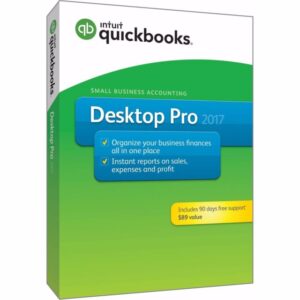Accounting Treatment For Debt Securities – Treasury Bills & Bond Investment – Journal Entries For Treasury Stock & Bond Purchases at Discount or Premium From Government.
A business with excess cash can, as an alternative to bank savings, decide to invest in a short or long term securities which guarantee a fixed return on quarterly, semi-annual or annual basis. One of such securities could be debt or equity. In this accounting treatment, we will share tips on how to record investment in debt securities – treasury bill and bond investment. While treasury bills is a short-term debt security issued (above or below the face value) by the government to raise finance for the capital project with maturity less than a year, bond investment is a long-term debt instrument with coupon rate and maturity up to 20-30 years.
These two debt securities are popular among corporate investors because they are regarded as risk-free investment backed by the credit of the government.
Request For Our Accounting Software Service
For over 5 years, we have implemented QuickBooks and Sage 50 for several companies under Retail, Manufacturing, Oil & Gas, Real Estate & Construction, Travels, Hospitality,Legal, Co-operatives, NGOs, Financial & Service Sectors.- Mbaire Services Nigeria Ltd(Construction)
- Chisco Transport Limited(Transport)
- Lounge38(Hotel and Bars)
- CTRL System Technologies Limited(Procurements)
- Aristokrat 360 Limited(Creative & Media Agency)
- Alpha Pharmacy (Health Care & Supermarket)
- Ericsson Nigeria Multipurpose Co-operative Society (Co-operatives)
- Fastanet Limited (ICT and Security)
- Britanic Maritime (Maritime Service)
- CEO Business Limited (Salary Advance, Credit Finance and Loan)
- OneHealth Pharmacy (Health Care)
- Widdi Pharmacy (Health Care)
- Olpharm Pharmacy (Health Care & Distributor)
- Hawkes Legal(Legal)
- Kantessa Limited(Fashion Store)
- OPI Nigeria International Limited (Oil & Gas Servicing)
- Zenilum Company Limited (Oil & Gas Servicing)
- Extol Security Services Limited (Security and Guard Services)
- Lilygate Hotel(Hospitality)
- Benstel Nigeria Limited(Bottle Water Production & Distribution)
- Paraclete Nigeria Limited (Bottle Water Production & Distribution)
- Lakia Construction Limited (Real Estate Development)
- Josien Holdings Limited(Distribution)
- Aisha Buhari Foundation (Futured Assured)(NGO)
- Doheney HR Services(HR)
- Insights Limited(Health Consultant)
- Biddel Oil & Gas Limited (Oil & Gas)
- System Intelligenz Limited(Contractor)
- MagTech Information Security (IT)
- Infusion Cakes Nigeria (Bakery)
- SCERA Nigeria (NGO)
- M.D School (Private School)
- Travel Options (Travels)
- Logos Travel Support & Solutions Ltd (Travels)
- Melcurt Nigeria Limited (Oil and Gas Engineering and Pipeline Construction)
- Starlight Nigeria (Retail)
- Temple Private School (Education)
- Value Mart Supermarket (Retail)
- Transweb Bureau De Change (Financial Service)
- Vektro Food Limited (Manufacturing & Retails)
- Orient Petroleum PLC (Oil & Gas)
- Plus More
Return on T-Bill Vs Return on Bond Investment
In calculating the interest on investment in treasury bills, you compare the face value and purchase price. It is sometimes referred to as a “discount”. To recognise interest income consecutively over the life of a Treasury bills the interest method should be used. The interest method is used to amortize the discount or premium and recognize interest income. The interest rate used in calculating the return on this debt security is the prevailing rate of similar securities, other known as “effective interest rate”. This is different from the computation of interest earned on bond securities where you calculate the known coupon rate against the purchase price.
As a business owner who also wants to track investment in debt securities, here is guide to treating investment in treasury bill and bond.
Accounting Entries For Debt Securities – Treasury Bills & Bond Investment
For Purchase of Treasury Bills & Bond. CR your bank account and DR the investment in T-bill or bond account ( you can even categorise your investments under short or long-term in which treasury bills is classified as short while bond is long) with the cost of investment, including brokers’ charges.
For interest earned on debt securities, you DR your T-Bill or bank account (for Bond investment) and CR the interest income account with the amount received ( which could be quarterly, semi-annual or annual interest rate).
Debt Maturity
At maturity period, your DR your bank account and CR the T-bill account (with the face value of the security) or CR bond investment with the principal value.
Hope you find this accounting treatment for debt investment like treasury bills and bond useful? Read more tips on accounting treatment for business transactions here
Recommended QuickBooks Software With Genuine License Details, It's One-Off:
Order Now, Call 08105090001, 08084219399 or mail at info@accountingsoftware.com.ng
-

QuickBooks Premier – 1 User
View Price Offers -

QuickBooks Premier – 3 Users
View Price Offers -

QuickBooks Premier – 4 Users
View Price Offers -

QuickBooks Premier – 5 Users
View Price Offers -

QuickBooks Premier – 2 User
View Price Offers -

QuickBooks Pro – 1 User
View Price Offers -

QuickBooks Pro – 2 Users
View Price Offers -

QuickBooks Pro – 3 Users
View Price Offers











